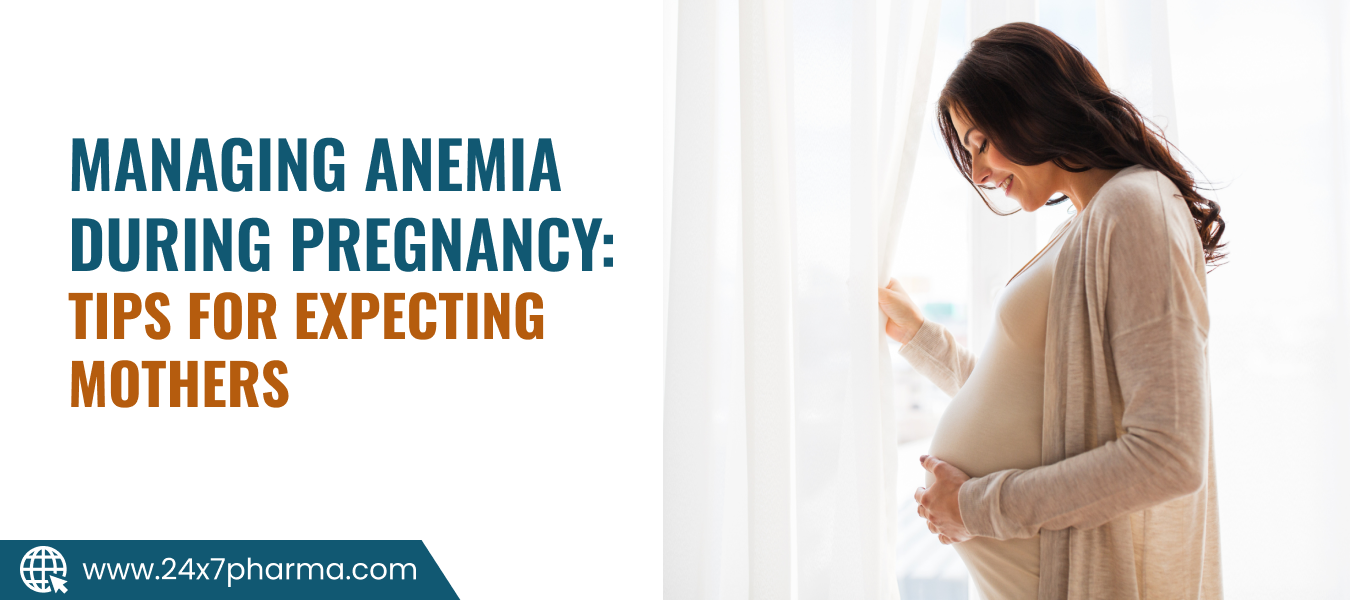Why Iron Matters for You and Your Baby
Pregnancy is a beautiful journey, but it also brings unique challenges, including the risk of anemia. Pregnancy anemia management is essential for preventing complications, boosting energy, and promoting healthy fetal development. Low iron levels can lead to pregnancy fatigue and iron deficiency, making it crucial to focus on iron intake.
Anemia in Pregnancy: What Every Mom-to-Be Should Know
Understanding Anemia and Its Impact on Pregnancy
Anemia occurs when your body doesn’t have enough red blood cells to carry oxygen effectively. During pregnancy, your blood volume increases, making adequate iron intake even more crucial. Low hemoglobin in pregnancy can lead to fatigue, dizziness, and even premature birth.
Common Causes and Risk Factors
- Insufficient iron intake from diet
- Increased iron demands during pregnancy
- Blood loss from previous pregnancies or heavy menstruation
- Poor iron absorption due to digestive issues or certain medications
- Multiple pregnancies (twins or more)
Red Flags: Signs Your Body Needs More Iron
Subtle and Obvious Symptoms to Watch For
- Extreme fatigue and weakness
- Pale skin, lips, and nails
- Shortness of breath
- Dizziness or lightheadedness
- Rapid heartbeat
- Cold hands and feet
- Frequent headaches
Read More: The Role of Vitamin B12 and Folate in Preventing Anemia
When to Seek Medical Advice
If you experience persistent fatigue, dizziness, or other symptoms, consult your doctor for a blood test. Detecting anemia early can help prevent complications and ensure both you and your baby stay healthy.
Iron Power: Natural Ways to Boost Your Levels
Superfoods for Super Moms: Best Iron-Rich Foods
Incorporating iron-rich foods into your diet is the most natural way to prevent and treat anemia. Some of the best options include:
- Heme Iron (Animal Sources): Lean red meat, chicken, turkey, and fish
- Non-Heme Iron (Plant Sources): Spinach, lentils, beans, tofu, quinoa, and fortified cereals
- Iron-Rich Fruits: Prunes, dates, figs, and dried apricots
- Nuts & Seeds: Pumpkin seeds, flaxseeds, and cashews
Smart Eating: Nutrients That Enhance Iron Absorption
Pairing iron-rich foods with vitamin C sources enhances absorption. Great combinations include:
- Spinach salad with citrus dressing
- Lentils with bell peppers and tomatoes
- Fortified cereal with strawberries
What to Avoid: Foods and Drinks That Block Iron Intake
Certain foods and drinks can hinder iron absorption, such as:
- Calcium-Rich Foods (Milk, cheese, yogurt) – Avoid consuming them with iron-rich meals
- Caffeinated Drinks (Tea, coffee) – Reduce intake or drink them between meals
- High-Fiber Foods – While healthy, excess fiber can reduce iron absorption
Beyond Diet: Other Essential Tips to Prevent Anemia
The Role of Iron Supplements and How to Take Them Effectively
Sometimes diet alone isn’t enough, and iron supplements become necessary. Iron supplements vs. food sources is a common question among pregnant women. To maximize effectiveness:
- Take iron supplements on an empty stomach with vitamin C (like orange juice)
- Avoid calcium and caffeine close to supplement intake
- Follow your doctor’s recommended dosage to prevent side effects like constipation
Lifestyle Habits That Improve Iron Absorption
- Stay hydrated to aid digestion and nutrient absorption
- Engage in regular prenatal exercise to boost circulation
- Get adequate rest to help your body utilize nutrients efficiently
Managing Anemia Safely with Doctor’s Guidance
If diagnosed with anemia, your healthcare provider may recommend iron infusions or additional treatments, depending on the severity. Regular monitoring ensures your levels remain stable throughout pregnancy.
The Doctor’s Word: When Medical Intervention Is Needed
How Anemia Is Diagnosed During Prenatal Check-Ups
Blood tests measuring hemoglobin (Hb) and hematocrit (Hct) levels help determine if you have anemia. Your doctor may also assess ferritin levels to check iron stores. Early signs of anemia in pregnant women can often be detected through routine tests.
Treatments for Moderate to Severe Anemia
For severe cases, your doctor may recommend:
- Higher-dose iron supplements or IV iron therapy
- Dietary adjustments with strict monitoring
- In rare cases, blood transfusions (for dangerously low levels)
Final Thoughts: Stay Strong, Stay Healthy!
How to prevent anemia naturally in pregnancy is a major concern for many moms-to-be. Beating anemia is achievable with the right diet, lifestyle, and medical guidance. Prioritizing the best diet for anemia during pregnancy, following your doctor’s recommendations, and staying proactive with check-ups will ensure a healthier pregnancy for you and your baby.
Looking for expert advice on pregnancy nutrition? Stay tuned for more tips on maintaining a balanced, healthy pregnancy!

